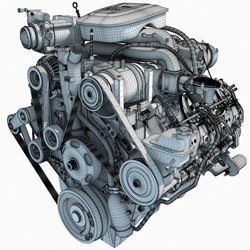P3253 Engine Code Repair
Meaning of P3253 engine trouble code is a kind of powertrain trouble code and P3253 if your catalytic convertor fails completely, you eventually won't be able to keep the car running. Your gas mileage will also be terrible, so you should try and fix it as soon as you can. Unfortunately, the average replacement cost is around $2,140 and you can't do it yourself unless you're an experienced mechanic.
P3253 Fault Symptoms :
- Check engine light comes on
- Engine stalling or misfiring
- Engine performance issues
- Car not starting
If one of these reasons for P3253 code is occuring now you should check P3253 repair processes.
Now don't ask yourself; What should you do with P3253 code ?
The solution is here :
P3253 Possible Solution:

The firing order is an important part of the overall design of the engine and is determined during the design of the engine to eliminate as much engine vibration as possible. If the firing order is changed or adjusted, the ignition from the spark plug is delivered at the wrong time and the engine functions poorly or does not run. The firing order for a particular engine is typically found in the repair manual specific to that model.
P3253 Code Meaning :
P
OBD-II Diagnostic Powertrain (P) Trouble Code For Engine
3
Ignition System Or Misfire
2
Fuel Rail/System Pressure - Too High
5
Injection lump Fuel Metering Control 'B' High (Cam/Rotor/Injector)
3
Glow Plug/Heater Circuit 'A' Malfunction
Is the fuel pump sometimes not priming when you turn the key to ON(II)? Start by measuring the fuel pressure and checking whether you have bright white-bluish spark at all four plugs. The mechanical timing is also something that you should check, as we mentioned above.
P3253 OBD-II Diagnostic Powertrain (P) Trouble Code DescriptionP3253 engine trouble code is about Glow Plug/Heater Circuit 'A' Malfunction.Main reason For P3253 CodeThe reason of P3253 OBD-II Engine Trouble Code is Fuel Rail/System Pressure - Too High. |
P3253 DTC reports a sensor fault, replacement of the sensor is unlikely to resolve the underlying problem. The fault is most likely to be caused by the systems that the sensor is monitoring, but might even be caused by the wiring to the sensor itself.
